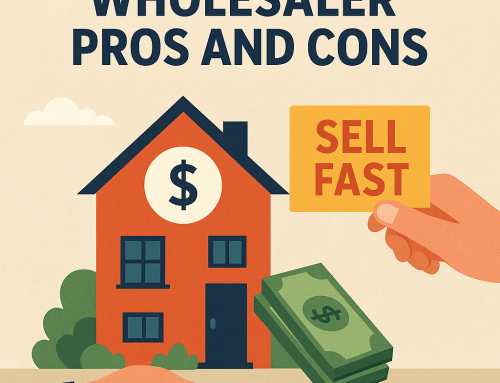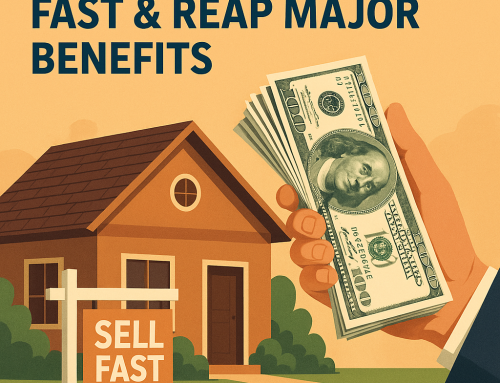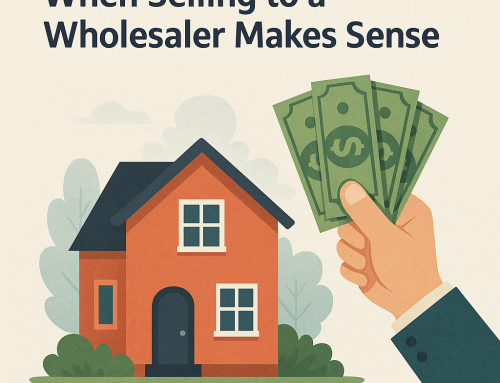- The Advantages of Selling Your Home
- The Disadvantages of Selling Your Home
- The Benefits of Renting Your Property
- The Drawbacks of Renting Your Property
- Conclusion
When faced with the decision to move or change living situations, homeowners often grapple with two primary options: renting their property or selling it outright. Each choice carries its own set of advantages and disadvantages that can significantly impact your financial situation and personal peace of mind. Understanding these pros and cons is crucial, especially if you’re looking to sell your home fast or consider alternative approaches like receiving cash for home.
The Advantages of Selling Your Home
1. Immediate Financial Relief
One of the most attractive aspects of selling is the potential for immediate cash flow. If you’re in a tight financial position, selling your property can provide a lump sum that may alleviate debts, fund a new purchase, or ensure a more stable living situation. For many homeowners, the prospect of receiving cash for home can alleviate financial stress and contribute to a fresh start.
2. Avoiding Landlord Responsibilities
Property management can be demanding. From dealing with repairs to handling tenant issues, being a landlord often requires substantial time and effort. Selling your home eliminates these responsibilities, allowing you to focus on other life priorities without the additional everyday pressures of property management.
3. Market Dynamics
In a booming real estate market, selling can be particularly beneficial. Home prices may be rising, providing sellers with the opportunity to capitalize on increased property value. If you can sell your home fast while the market is in your favor, you might secure a better price than if you wait for potential downturns.
The Disadvantages of Selling Your Home
1. Loss of Future Value
Selling your home is a permanent decision. While you might be tempted by current market conditions, it’s vital to consider the long-term implications. If property values increase after your sale, you could miss out on potential equity gains.
2. Selling Costs
The process of selling a home comes with its own costs, from agent commissions to closing fees. These expenses can accumulate rapidly and eat into your profit margin, making it essential to evaluate whether selling is financially wise in the long run.
3. Emotional Attachment
A home is often more than just a structure; it’s filled with memories and personal sentiment. Deciding to sell can be an emotional and challenging process, impacting your decision-making and overall peace of mind.
The Benefits of Renting Your Property
1. Sustained Income Stream
Renting out your home can provide consistent monthly income, allowing you to take advantage of cash flow while holding on to your asset. This can be especially beneficial in areas with strong rental markets, making it a viable option for homeowners seeking financial stability.
2. Keeping Property Value
By renting, you maintain ownership of the property, which can appreciate over time. This could be a strategic move if you’re not in a hurry to sell and believe the market will improve, potentially yielding a higher selling price in the future.
3. Flexibility in Living Choices
Renting your home provides the chance to transition without completely severing ties to the property. If you later decide to return or find that circumstances change, you still have a foothold in your former home.
The Drawbacks of Renting Your Property
1. Tenant Management
Being a landlord comes with its own set of challenges. Maintaining the property, addressing tenant complaints, and dealing with potential vacancy periods can be stressful and time-consuming. These responsibilities can lead to unexpected difficulties, particularly if tenants fail to pay rent on time.
2. Potential for Property Damage
Tenants may not take as much care of your property as you would. This could lead to increased repair costs and the need for regular maintenance, impacting your profit from renting.
3. Uncertain Income
Renting may seem like a lucrative option, but it can also come with uncertainties. Economic downturns can affect rental markets, leading to reduced demand or lower rent prices, which could impact your financial expectations.
Conclusion
Ultimately, the decision to sell or rent your home depends on your individual circumstances, future goals, and market conditions. While selling can provide immediate financial relief and eliminate management responsibilities, renting allows you to maintain ownership of your property and create a steady income stream. Assessing both the pros and cons will help you make an informed decision that aligns with your financial goals and lifestyle preferences. Whether you choose to sell home fast or explore the rental route, consider consulting with a real estate expert to navigate the process effectively.




